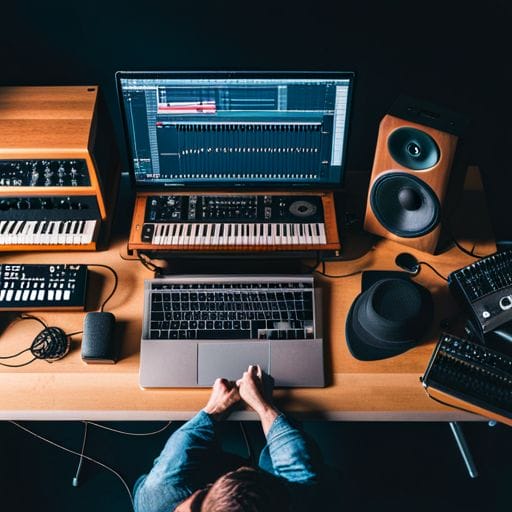The AI-Driven Future of Music Production

What emerging AI tools and technologies are influencing the future of music production?
Artificial Intelligence (AI) has drastically evolved over the past decades and is now pervading nearly every corner of our lives. From smartphones to self-driving cars, it’s hard to ignore the major impact AI is having on various industries. One of the areas that AI is now starting to reshape is the field of music production. The integration of AI in music production is set to redefine the conventional methods of creating music.
This trend of exploiting AI in the world of music is not only ushering in a new era of creativity but also raising questions about the future of human composers, producers, and artists. Here we shall delve into the subject to understand how AI is revolutionizing the music industry and what lies ahead in this landscape.
The Current Impact of AI in Music Production
Artificial Intelligence has been introduced into music production in various ways. Companies like Amper Music, OpenAI’s MuseNet, and Jukin have created AI platforms that can compose music in a multitude of genres and moods. These AI programs can generate complete compositions, from symphonies to pop songs, with minimum human intervention.
Surprisingly, AI compose music not by imitating predefined patterns but learning from vast datasets of songs. This allows them to create original compositions that are impressive and surprising to human ears. AI can also help in the production stage, mastering tracks, enhancing audio quality, and using algorithms to suggest improvements.
How is AI Changing the Role of Humans in Music Production?
AI’s intrusion into music production doesn’t necessarily mean the end of human composers or musicians. Instead, it is providing them with new tools to express their creativity. AI can handle the more technical parts of the music production chain, enabling artists to focus more on the artistic side. Moreover, AI can act as a collaborative partner, providing inspiration and ideas that artists can work upon.
The Future of AI in Music Production
The future of AI in music production looks promising. As AI technologies continue to improve, we can expect music software to become increasingly sophisticated and intuitive.
The AI tools of the future will likely be capable of understanding and responding to human emotions, opening up new areas of creativity. We can also expect AI to offer personalized music experiences, adapting dynamically to the listener’s mood and preferences.
Final Thoughts
While the AI-driven future of music production is exhilarating, it also brings up questions about copyright and authorship. As we dive into this new era, it’s important to establish the right laws and ethical guidelines to ensure that the use of AI in music production benefits everyone—artists, producers, and listeners alike.
AI is not set to replace human musicians but to augment their capabilities. After all, music is about emotion and storytelling—something that lies at the very core of being human. As we move forward, it will be interesting to see how the relationship between AI and human creativity continues to evolve in the music industry.
If anything, AI is proving that it can be a powerful tool in the music production process, leaving us with thrilling questions about the future of this symbiotic relationship.
